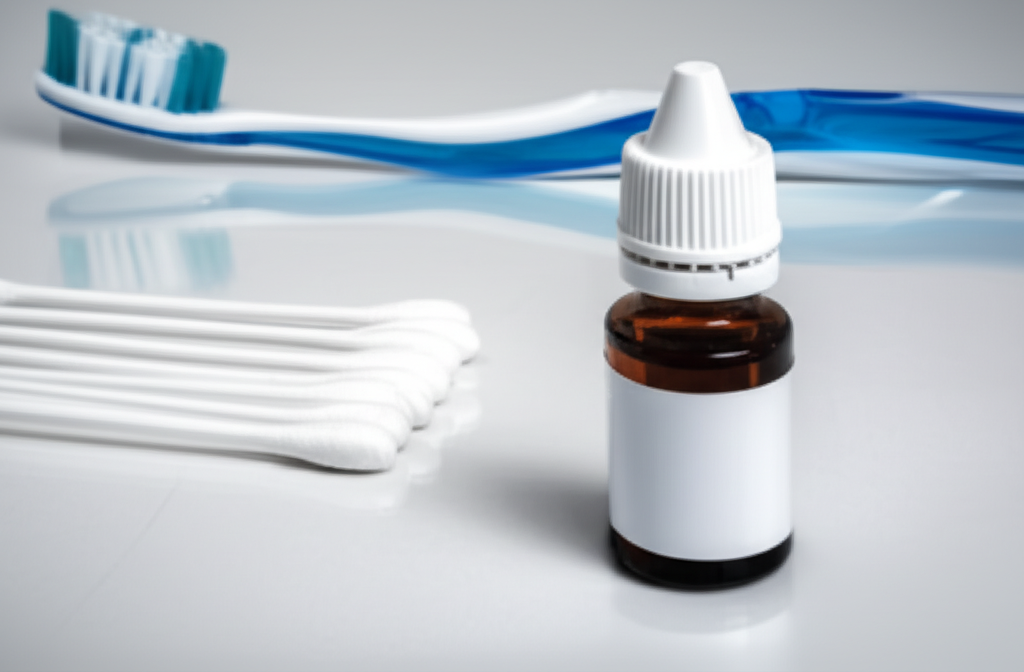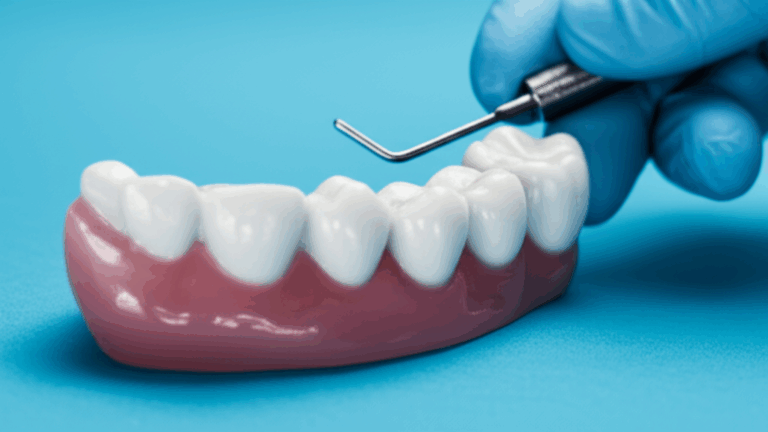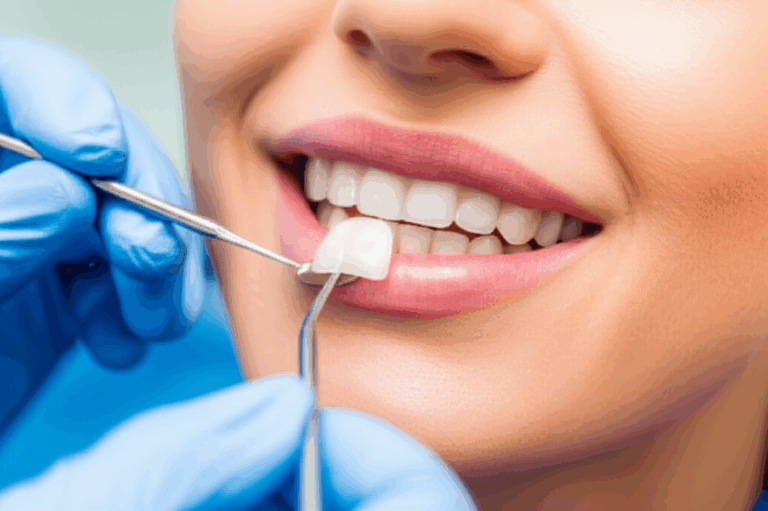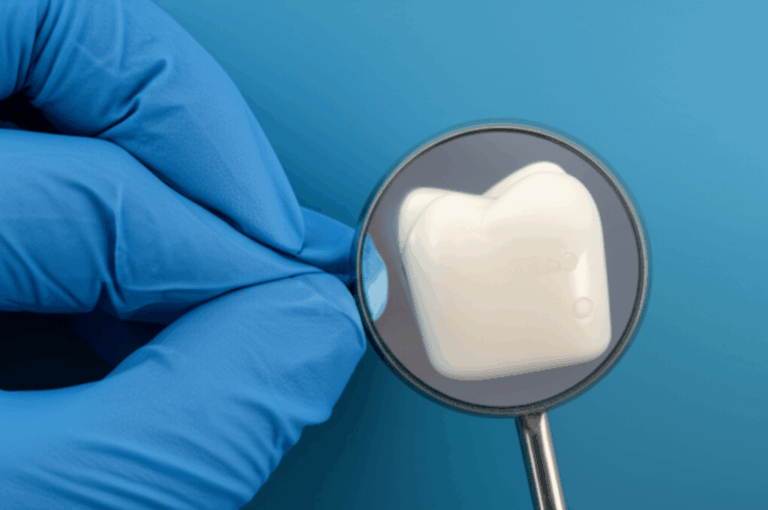
How to Safely & Effectively Numb Your Mouth Before a Dentist Appointment (and When Not To)
Do you get nervous when it’s time to see the dentist? Are you scared of pain, shots, or just getting your teeth cleaned? You’re not alone! Lots of people feel nervous about going to the dentist. In this guide, I’ll show you safe and simple ways you can numb your mouth a bit before your visit, so you feel more relaxed. You’ll find out what works, what’s not safe, and how to talk with your dentist for the smoothest visit. Keep reading—this might help you have a way better time at the dentist!
Table of Contents
Facing Dental Discomfort & Anxiety: You’re Not Alone!
Let’s be honest—almost nobody really likes sitting in the dentist’s chair. If you’ve ever felt your stomach get tied up in knots before a dentist visit, you’re not by yourself. Around 36% of people have dental worry, and 12% are super scared. Some people are afraid of pain. Others just hate the sound of the drill or seeing a shot. Maybe you remember a time when getting your teeth cleaned or a filling hurt a lot, and now you get tense each time you go.
Let’s not pretend this isn’t a thing. If you hurt or get scared, you might just put off going to the dentist, which is bad for your teeth. So, what can you do if you really need help even before your dentist puts on their numbing gel or gives you a shot? Let’s look at your choices together.
Why Do People Want to Numb Their Mouth Before the Dentist?
Good question—why not just let the dentist do it? There are a few big reasons:
- You have a toothache or sore gums. Sometimes your mouth hurts before you even get there. You want a little relief ahead of time.
- You’re scared of the shot. Many people really don’t like needles, especially for their mouth.
- Cleanings still hurt. If your gums are already sore, even having them cleaned can feel rough.
- Dental fear is real. Just thinking about going to the dentist might make your heart beat faster.
If any of this sounds like you, it makes sense you’d want to numb your mouth early.
What Are Over-the-Counter Numbing Solutions?
Walk through the drugstore and you’ll see lots of stuff made to help tooth or gum pain. Let’s see what’s safe—and what isn’t.
Numbing Gels & Liquids
These are things like Orajel and Anbesol—they have stuff called benzocaine or lidocaine to block nerves on your gums or cheeks. You might use them if a tooth hurts or just to dull pain before a shot at the dentist.
How To Use Them:
Warnings:
- Don’t use too much! Using too much can make you sick, even causing a rare problem called methemoglobinemia (mostly a worry for babies and young kids).
- Always tell your dentist if you did this at home.
- These gels only numb the top layers—not deep pains from bad cavities or extractions.
Sensitive Toothpaste
If your teeth hurt when you drink something cold or even brush, toothpaste for sensitive teeth can help after you use it for a couple weeks. Stuff with potassium nitrate or stannous fluoride works best. But don’t expect it to numb right away—use it morning and night for a few weeks to feel better.
Are There Natural or Home Remedies That Work?
People have tried home tricks for a long time. Some work a bit, some barely help at all. Here’s what you should know:
Clove Oil
Ever notice a spicy smell at the dentist’s office? That’s clove oil. It has something called eugenol which can numb pain for a little while. You can get clove oil at most stores.
How to use:
- Always mix it with another oil (like olive oil), so it’s not too strong.
- Put a tiny bit on a cotton swab and gently press it to your sore spot.
- It takes about 5 minutes to kick in, and the pain relief may last 10–20 minutes.
Cons:
- It tastes very strong.
- Too much can burn your mouth or tongue.
- Not officially approved as medicine for numbing.
Saltwater Rinse
Saltwater won’t actually numb your mouth, but it can make sore spots feel a little better. Mix half a teaspoon of salt in a cup of warm water, swish it around, then spit. Do this a few times a day for sore mouths.
Cold Pack or Ice
If your cheek is big or puffy, put an ice pack on the outside of your face for 15–20 minutes. Cold shrinks blood vessels and can help swelling. This is more for puffiness or throbbing than for real mouth numbness.
What Should You Never Do When Trying to Numb Your Mouth?
Here’s the most important stuff. Some things you should never even think about doing:
- Never give yourself a shot! Only trained dentists should ever use needles for numbing. Doing it yourself is super risky.
- Don’t put on too much numbing gel, especially on kids or babies. Too much can make you very sick.
- Don’t use chemicals from the bathroom, garage, or kitchen. Never put alcohol, cleaners, or other stuff in your mouth.
- Never use straight clove oil or other oils without mixing them.
Most important: don’t use numbing stuff just to avoid a dentist or put off a real visit if you have pain, swelling, or fever. These could be signs of a bad infection or emergency.
Why Is Talking to Your Dentist the Best Plan?
Here’s the real deal: Even if home tricks help a bit, nothing works as well as what your dentist can do. Tell your dentist about your pain or fear—before your appointment starts.
Dentists can:
- Use special numbing gels on your gums before shots.
- Give you a safe local anesthesia (yep, the famous Novocaine shot) for real pain-fighting.
- Offer laughing gas (nitrous oxide) if you’re jumpy or really scared.
- Give you a calming pill if you have big anxiety.
- Use stronger calming medicine through a vein in people who need a lot of help.
Most dentists really care about making you feel better. If you let them know what you’re worried about and what you tried already, they’ll work with you for your comfort.
For some fixes like crowns, dentists work with labs, like a trusted china dental lab, to make sure crowns, bridges, or dentures fit you well and don’t hurt.
Is Self-Numbing Just a Quick Fix?
Let’s be real—a little bit of numbing gel, saltwater, or clove oil is just a quick help. These tricks don’t fix tooth problems, stop infections, or make deep pain go away forever.
You can use these simple ways to make things a bit better while you wait for your dental visit. But they don’t really help for big treatments like fillings, root canals, or pulling out a tooth. So just see these home tricks as a helper—not your whole plan.
For long lasting relief from sensitive teeth, stick with sensitive toothpaste each day. And if you need new teeth, crowns, or other work, your dentist works with the best partners, like a crown and bridge lab, to make sure your smile is made just for you.
How to Beat Dental Fear and Anxiety
I used to squeeze the dentist’s chair so hard my hands were sore! Over time, I found a few things to help. Here’s what worked for me, and could help you too.
Ways to Get Over Dental Fear:
- Try deep breathing right before and during your visit.
- Tell your dentist you feel nervous right away—don’t keep it to yourself!
- Bring music and headphones—make a playlist you love.
- Bring a friend, family member, or even a stuffed animal if it helps.
- Practice relaxing or picture a happy, calm place.
Dentists and their teams see nervous people every day. The more honest you are, the more they can help you feel okay.
Common Questions About Mouth Numbing Before the Dentist (FAQs)
Will my dentist still numb me if I’ve already numbed my mouth at home?
Yes, your dentist will likely still use their own numbing. Home stuff only helps the top layer. Make sure you let your dentist know what you used and when.
How long before my visit should I use numbing gel?
The gel works best 5–10 minutes before your visit, right where it hurts, and only use it the way the label says.
Is it fine to use Orajel every day for a toothache?
No, using it daily isn’t safe without asking your dentist. Too much can cause trouble or hide bigger problems.
Can I eat or drink after using numbing gel?
Wait until the numb feeling is gone. You might bite your tongue or cheek by accident if you try to eat while still numb.
What’s the difference between home numbing and what my dentist uses?
Stuff from the store only numbs the top gums for a short time. Dentists use much stronger stuff to numb deeper and last longer.
Summary: What Should You Remember?
- Most fear about the dentist comes from being scared of pain or remembering something bad before.
- Over-the-counter gels like Orajel or Anbesol only numb the top for a short while. Use small amounts and be careful.
- Clove oil helps some, but not everyone.
- Saltwater rinses and ice packs help with swelling but don’t work for deep pain.
- Don’t ever inject yourself or use risky stuff at home—dangerous!
- Best plan: Talk honestly with your dentist about how you’re feeling.
- Dentists have the safest, longest-lasting ways to keep you relaxed.
- Dental teams work with good labs, like a digital dental lab, to make sure your dental work fits well and feels nice.
The Most Important Things
- Talking with your dentist is the best way to feel comfy.
- Numbing gels are just quick helpers—not a fix.
- Never put chemicals in your mouth or do shots at home.
- Only use home remedies as the bottle or label says.
- Try sensitive toothpaste for long-term help with sensitive teeth.
- Tell your dental team your worries—they can often help much more!
- Real numbing and relaxing medicines from the dentist help the most.
| Product/Remedy | How Fast Does It Work? | How Long Does It Last? | Best For | Do’s/Don’ts |
|---|---|---|---|---|
| Numbing Gel (Orajel, Anbesol) | 2–5 minutes | 10–20 minutes | Small gum or tooth pain | Use a little, read the label, not for kids under 2 |
| Clove Oil | 5 minutes | 10–20 minutes | Mild tooth or gum aches | Mix with another oil, stop if you feel burning |
| Saltwater Rinse | Works right away | Short help only | Sore or puffy gums, after dental work | Use warm water, do it a few times per day |
| Ice Pack | Works fast | 20 minutes | Swelling or puffy face | Outside on your cheek, not right in your mouth |
| Sensitive Toothpaste | Daily for 2–4 weeks | As long as you use it | Tooth sensitivity | Use twice a day, not for sudden pain |
Sources:
- American Dental Association (ADA): Dental Anxiety and Numbing Products
- FDA Warnings for Benzocaine Use
- Journal of Clinical Dentistry, “Effectiveness of Home Remedies vs. Professional Anesthetics”
If you want to learn more about pain-free dental stuff, how dentists fix teeth, or how crowns and dentures are made, check out info from the top china dental lab, crown and bridge lab, or a veneer lab—these groups help dentists make sure you get a great-looking and comfy smile!
Remember: Feeling nervous about your dentist is pretty normal. Numbing things at home can help a bit, but there’s nothing better than talking openly with your dentist and their helpers. That’s the real way to keep your mouth—and you—feeling great.








